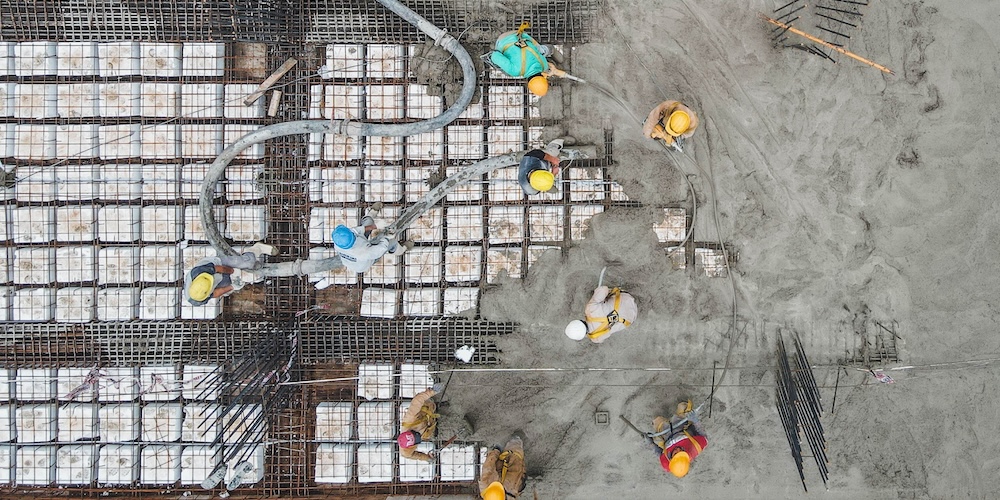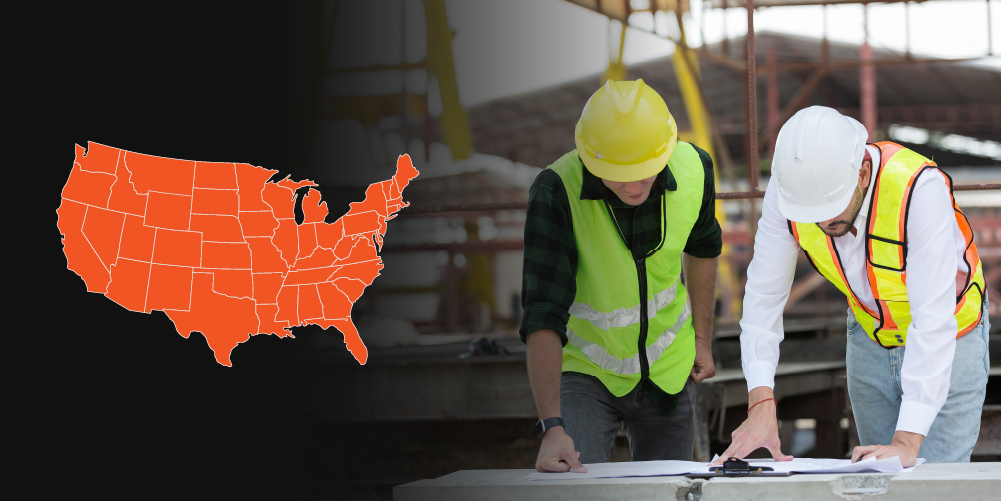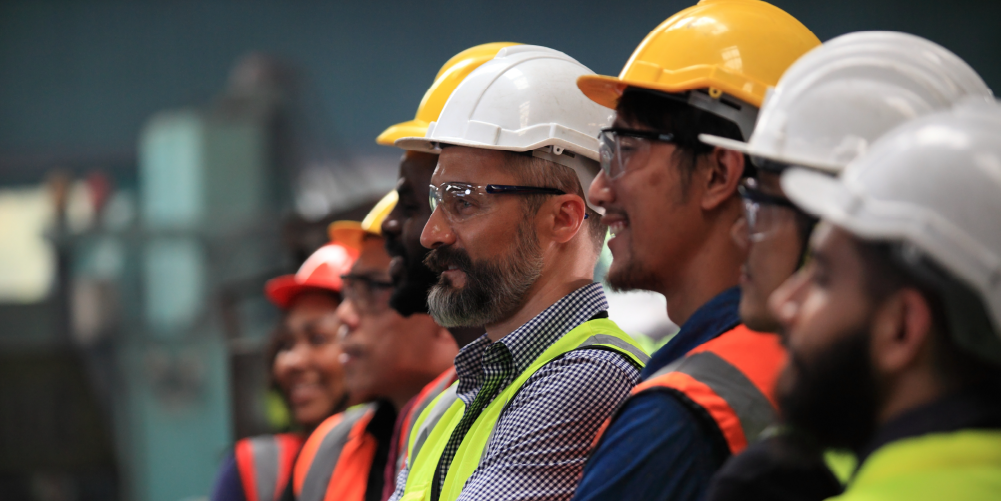— 11 min read
Construction Manager vs. Project Manager: Comparing Leadership Roles
Last Updated Feb 19, 2025
Last Updated Feb 19, 2025

Skillful oversight of construction projects allows companies to deliver to owners on time and within budget. Construction managers (CMs) and project managers (PMs) provide the necessary supervision to keep projects on track, each focusing on different aspects. Their responsibilities often overlap and the terms can be used interchangeably, causing confusion. The specific duties of each role may vary between projects.
This article will explore the differences between PMs and CMs, their respective responsibilities, necessary skills and career paths. It will also address the impact of project delivery methods on these roles and common challenges for CMs and PMs.
Table of contents
Construction Manager vs. Project Manager: Key Differences
Typically, the project manager has overall authority over the schedule and budget and coordinates between site personnel, design teams and owners. On the other hand, the construction manager is often more experienced with specific trade skills and, while overseeing the project as a whole, spends more time working with teams on the construction site.
Project managers are involved from the site selection to the handover to the owner, while construction managers are most involved during the execution or construction phase of a project. On larger projects, the construction manager usually reports to the project manager.
CMs and PMs need to work closely together to deliver projects, and many of the skills required for these roles are the same. However, it is more common for construction managers to have experience in the trades and with on-site construction skills, while project managers may have more formal education and budgetary and project management training.
Project managers work for general contracting companies, overseeing the contract's schedule and budget, helping to supervise subcontractors and suppliers and handling meetings with owners and construction personnel. Construction managers can be employed by different entities in the construction process. The owner often hires construction managers as a separate consultant. However, the construction manager may also be an employee of the owner or, in some cases, be part of the GCs team.
At the Royal Bank of Canada, I was in the construction department, acting as a construction manager overseeing projects like building new RBC branches. My role was to manage the entire construction process, acting almost like an owner's rep. This included handling the design and working closely with architects.
We would hire a general contractor, and their project manager would focus on day-to-day tasks, managing subcontractors, people, materials and deliveries.
Alison Hart
Senior Manager of Project Solutions
Mortenson
Part of the difficulty in distinguishing between project manager and construction manager roles is that the terms have different meanings in many places around the world. For instance, in Ireland, the role of construction manager is more akin to what would be called the site superintendent in the United States. Adding to the misperceptions, the differences between CMs and PMs can vary between projects and delivery methods.
Construction managers can act as the owner’s representative, often called Construction Manager as Agent. In the Construction Manager at Risk (CMAR) delivery method, the construction manager is frequently a consultant hired by the owner to manage the GC or an employee of the GC who oversees the construction project. On some projects, the CM is involved during the design phase as well as the execution.
Roles and Responsibilities of a Construction Manager vs Project Manager
The roles of CMs and PMs overlap, but defining the exact duties of each role on each project helps the management team work well together.
Project Manager Responsibilities
Project managers have primary responsibility for scheduling and coordinating the many activities and teams needed for construction from start to finish. Although they may occasionally visit the construction site, they are more likely to spend most of their time in the office.
- Project Planning: Develop detailed project plans, including timelines, budgets and resource allocation.
- Budget Management: Monitor project expenses so the project stays within budget.
- Scheduling: Create and manage project schedules to guarantee timely completion.
- Team Coordination: Oversee and coordinate the work of all project team members, including subcontractors and suppliers.
- Communication: Serve as the primary point of contact between clients and project team members.
- Risk Management: Identify potential project risks and develop mitigation strategies.
- Quality Control: Make sure all work meets the required quality standards and specifications.
- Contract Management: Handle contracts, change orders and other legal agreements related to the project.
- Progress Monitoring: Track and report on project progress, making adjustments as needed.
- Safety Management: Ensure compliance with safety regulations and promote a safe working environment.
- Problem Solving: Address and resolve any issues or conflicts that arise during the project.
- Resource Management: Allocate and manage resources, including labor, materials and equipment.
Construction Manager Responsibilities
Construction managers have primary supervisory accountability for day-to-day activities and reporting during the project execution and spend more of their time in the field.
- Project Oversight: Supervise the entire construction process from start to finish.
- Planning and Scheduling: Develop comprehensive schedules and work plans for timely project completion.
- Budget Management: Oversee project budgets, ensuring cost-effectiveness and financial efficiency.
- Team Leadership: Lead and manage construction teams, including subcontractors and laborers.
- Quality Assurance: Ensure construction work meets quality standards and specifications.
- Safety Compliance: Enforce safety protocols and compliance with regulations to maintain a safe work environment.
- Contract Administration: Manage contracts, negotiate terms and handle change orders.
- Communication: Liaise with clients, architects, engineers and other stakeholders to facilitate smooth project execution.
- Resource Allocation: Allocate and manage resources such as materials, equipment and personnel.
- Risk Management: Identify potential risks and implement strategies to mitigate them.
- Problem Solving: Address and resolve any issues or conflicts that arise during construction.
- Regulatory Compliance: Make sure all construction activities comply with local, state and federal regulations.
The Impact of Project Delivery Method on Job Responsibilities
In a traditional design-bid-build contract, the project manager on the GCs team is involved from the preconstruction to delivery, while the CM is usually a consultant or firm hired by the owner to oversee the execution phase of the process.
With their extensive experience and understanding of construction methods, construction managers are often brought in to consult on CMAR and Design-Build projects during the design phase and through to completion. Because the exact makeup of the management team for different project delivery methods varies, the responsibilities of the project manager vs. the construction manager will adapt to the projects' needs.
Career Paths, Skills and Salaries for CMs and PMs
There is no one path to either career, as people with various training and backgrounds may end up in these roles. Employers increasingly prefer some college education, although people with experience in the construction industry often work their way up to these positions from other types of work in construction. Both roles require an understanding of construction methodologies and many soft skills, such as time management and communication skills.
Project managers usually have a bachelor’s degree, often in construction management, civil engineering or architecture. They need skills in financial management, organization and planning, risk management and the ability to work with technology and documentation. As of February 2025, the average salary for a project manager in construction is $119,251,, but experience, location and job type could make that higher or lower.
Construction managers often start in one of the skilled trades or other roles in construction. Some may gain certification or other training as they rise through the ranks. If they come to construction with a bachelor’s degree, aspiring construction managers will often need to gain work experience before moving up to this role.
As of February 2025, the average construction manager earns $139,175 annually. Skills integral to construction management include team leadership and problem-solving. A CM also needs to understand building codes, safety regulations and technology to oversee on-site activities effectively and make certain that specifications are followed.
Can a Construction Manager Be a Project Manager?
In some companies and smaller projects, one person may handle project and construction management. As general contracting companies grow, the management of projects gets more complex. Large-scale projects require at least a separate construction and project manager and possibly a whole team of assistants to help each role function. Larger GCs will often have a senior project manager who oversees PMs on multiple projects, and construction managers may also have a team of assistants to help handle all the details of managing subcontractors and site logistics.
The skills for CMs and PMs are very similar at the top level, as you understand the construction process, but your role, responsibility and accountability are just a little different. I've been in both roles, and they each have upsides and challenges.
The industry often sees people transition between project manager and construction manager roles because, while different, they share many similarities. It's an interchangeable role where you can easily move between managing day-to-day site activities and overseeing projects as an owner's rep.
Alison Hart
Senior Manager of Project Solutions
Mortenson
Overcoming Common Challenges in Construction and Project Management
Because construction and project managers are tasked with delivering a quality building project on time and within budget, the challenges they face can be similar and shared. Here are some of the most common challenges:
Communication, Coordination and Collaboration
Managing the expectations of the owner, design and general contractor teams requires clear communication to work out details of the contract and work plan. Project managers juggle many lines of communication, but coordinating meetings to keep all stakeholders in productive conversations will help clarify the project's objectives and get everyone on the same page. Regular reports keep teams apprised of progress between meetings and assist in detailed discussions.
Depending on the project, construction managers may also coordinate communication with owners and GCs, but the headaches are often more in managing communication between subs and other stakeholders.
With many parts of the build dependent on predecessor work and many teams on-site simultaneously, construction managers need to keep forepersons aware of the schedule and any issues or changes. Construction boards and daily meetings in the trailer can help construction managers work with teams to minimize missed communications and the errors they cause.
Budget Constraints
Maintaining quality while staying within budget is an issue on all projects. Project managers often oversee the budget, but construction managers also must keep work aligned with the project budget. Carefully managing the time each aspect of the construction takes and spotting and resolving issues early can help avoid rework and delays that can eat into the budget. Maintaining clear and open communication with laborers and team leads can encourage them to report flaws or faults before they become more difficult and costly to solve.
Weather, supply chain delays, material price changes and changes in the project's scope, among other reasons, can cause cost overruns. Robust planning and scheduling can help minimize overruns, but each problem may require a unique set of mitigation actions. Analyzing regular reports and documentation can help managers find ways to keep project costs in line with the budget.
Resource Allocation
Balancing resource availability and project needs is a challenge that can be lessened with good communication and robust documentation. Skilled workers are a precious resource, and managing their schedules to avoid downtime can help managers best use their talents to benefit the project. Good resource planning and tracking can also help manage other resources, like equipment and materials, as changes in the project occur.
Risk and Safety Management
Identifying potential risks early, such as financial and environmental factors, is complex but worthwhile. Navigating local, state and federal safety regulations requires careful attention. Establishing a strong safety culture on-site — especially with diverse teams and subcontractors — and responding effectively to safety incidents cannot be overlooked, even though the time pressure to deliver the project can be intense.
Thorough risk assessments and regularly updated management plans are valuable tools to mitigate hazards. Providing ongoing safety training ensures adherence to protocols. Clear procedures and regular audits help identify hazards and maintain compliance.
Time Management and Scope Changes
Project and construction managers often face tight deadlines, requiring precise scheduling and coordination of multiple teams and resources. Unexpected delays and schedule conflicts can complicate timelines. Additionally, managing scope changes is a persistent challenge. These changes can arise from client requests, unforeseen site conditions or regulatory requirements, potentially impacting the project's timeline and budget.
Construction management platforms can help track progress and adjust schedules in real-time. Clear communication with stakeholders helps manage expectations and address scope changes promptly. Establishing a formal change management process helps PMs and CMs assess the impact of changes and implement solutions efficiently. Regular progress reviews and proactive problem-solving can keep projects on track, minimizing disruptions and maintaining alignment with project goals.
Stay updated on what’s happening in construction.
Subscribe to Blueprint, Procore’s free construction newsletter, to get content from industry experts delivered straight to your inbox.

Technology for Project and Construction Managers
Technology and software have become indispensable tools for managing construction and making life easier for PMs and CMs. Advanced project management software systematizes scheduling, resource allocation and progress tracking, saving time and increasing visibility through detailed reports. Real-time updates and data analytics facilitate informed decision-making, allowing managers to adapt quickly to changes and optimize project outcomes.
Building Information Modeling (BIM) is another aid for construction and project managers, providing detailed 3D models that enhance collaboration among architects, engineers and construction teams. BIM helps identify potential issues before construction begins, reducing costly delays and rework. Mobile applications and cloud-based platforms also enable on-site teams to access project information anytime, anywhere, improving communication and streamlining workflows.
Increasingly, companies are deploying wearable technology and IoT devices that improve safety and efficiency on construction sites. These tools monitor conditions and worker movements, providing data that helps prevent accidents and improve site management. Tracking and viewing site conditions can help PMs and CMs increase project efficiency and safety compliance to deliver successful projects on time and within budget.
Construction managers and project managers are central to delivering projects. Implementing technology can streamline some of their tasks, but they must also employ strong communication, organizational and leadership skills to achieve project results that help companies and owners succeed.
Was this article helpful?
Thank you for your submission.
0%
0%
You voted that this article was . Was this a mistake? If so, change your vote here.
Scroll less, learn more about construction.
Subscribe to The Blueprint, Procore’s construction newsletter, to get content from industry experts delivered straight to your inbox.
By clicking this button, you agree to our Privacy Notice and Terms of Service.
Categories:
Written by
Julia Tell
44 articles
Julia Tell is a freelance writer covering education, construction, healthcare, and digital transformation. She holds a Ph.D. in Media & Communications and has written for publications including Business Insider, GoodRx, and EdSurge, as well as nonprofits, international businesses, and educational institutions.
View profileExplore more helpful resources

Mastering Construction Resource Management: Strategies for Success
Completing construction projects successfully requires the careful management of various resources: labor, materials, equipment, money, time and information. Since these resources are finite, allocating them wisely is crucial for minimizing...

Managing Construction Projects in Different States: A Contractor’s Guide to Working Across State Lines
For many general contractors, taking on work in a new state or region can offer transformative opportunities for building a thriving business and a respected reputation. But managing projects is...

Construction Teamwork: Build a Solid Foundation With the Right Team
Construction is an industry of collaboration — no one person completes any job on their own. It could easily be argued that the most important skill for anyone in this...

8 Tips for Managing Multiple Construction Projects
By its nature, construction work is a juggling act, with project managers and general contractors (GC) constantly adapting to changing conditions, planning to make sure there are enough materials and...